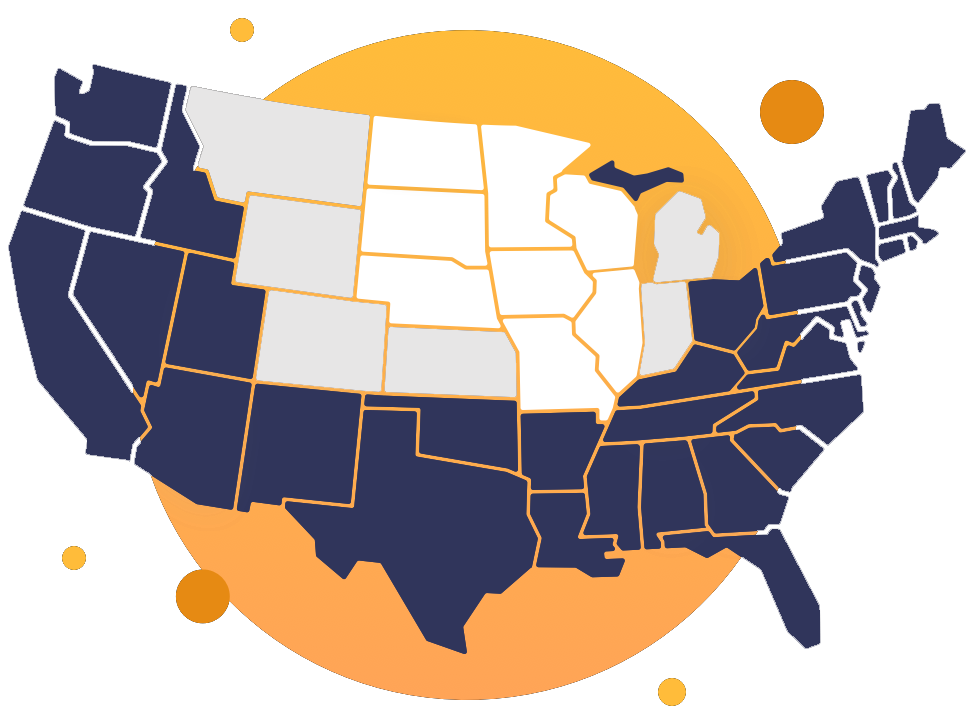
Ghosting Part 1 – the Disappearing Application Pipeline
The Urban Dictionary defines ghosting as “when a person cuts off all communication with their friends or the person they're dating, with zero warning or notice beforehand.” The practice of ghosting has also made it into the talent acquisition world, where recruiters are the ones guilty of radio silence without explanation, leaving applicants in the dark, never to know what could have turned the relationship sour.
Recruiter ghosting isn’t necessarily something new, but we finally have a name for it. And it needs to stop for the benefit of both parties.
Almost every candidate who’s tried to find a job in today’s fast-paced market has been ghosted by a recruiter along the way. Whether the recruiter said they would call but didn’t or the candidate was ghosted after the interview, these are detrimental to your employer brand. On the employer’s side, nearly every recruiter has been too busy with other tasks to dedicate time to engage every unsuitable candidate and explain why they weren’t a match for the company.
HIRECLICK took a rather unscientific poll (posed the question on Facebook, have you ever been ghosted by a recruiter after applying for a job) and it seems that nearly everyone has been ghosted after clicking ‘send’ on a job application.

“I’ve been ghosted *after interviewing.* More than once! Blessing in disguise is how I see it, because obviously they suck.” - Alex
“Yes, I’ve been ghosted several times after interviewing for a job, even after I followed up. I’ve also been ghosted after applying so much more often. Don’t even receive so much as a generic ‘thanks but no thanks’ email.” - Casey
“I've had this happen a lot of times over the last few years and it absolutely causes me to lose all respect for these institutions.” - John
“A no reply following an interview always changed my perspective of their culture and employee valuation.” - Deanna
“Yes. To me, it’s not professional, feels lazy and makes me feel that they don’t handle difficult conversations well. This translates to a work environment I wouldn’t want to be in. Especially as it relates to performance levels once inside the company.” - Kesha
Job seekers begin to form an opinion about a company, as an employer AND as a business, the very moment they begin the application process---and that opinion is difficult to change.
According to a 2018 report by the Human Capital Institute:
60 percent of job seekers report a negative candidate experience with the employers they engage.
72 percent of job seekers report sharing their negative candidate experiences online.
55 percent of job seekers report avoiding certain companies after reading negative online reviews.
Think about how quickly a single negative candidate experience could create a snowball effect, like if someone had a bad dining experience. To illustrate the point, imagine walking into an Italian restaurant and the following takes place: you must wait despite having made a reservation, the appetizer was cold, the server was rude when you asked for extra parmesan cheese and you found a Band-Aid in the chicken alfredo. Disgusted, you write a scathing review on Yelp and share it on social media channels to encourage others not to dine at that restaurant.
It’s the same for job candidates who suffer an overall negative hiring experience. With sites like Glassdoor and LinkedIn, it’s easy for candidates to vocalize their dissatisfaction with how they were treated and discourage others from applying, which affects your reputation as a company. Millennials, who represent three-fourths of active job seekers, are especially quick to share their experiences online and pay particularly close attention to reviews from their peers. When candidates are ghosted, you lose out on possible talent, and your employer brand takes a hit.
While the typical candidate spends about 3-4 hours preparing and submitting one job application, the typical employer spends less than 15 minutes reviewing that application.
You know that creating a positive recruitment experience is crucial, but how exactly can you get there? What should you do to ensure your company's hiring process stays out of the spotlight for all the wrong reasons? Though they may seem obvious, let’s start with a quote from---what else, Ghostbusters.
Peter Venkman: “Spengler, are you serious about actually catching a ghost?”
Egon Spengler: “I’m always serious.”
And so are we. Let’s catch some ghosts.
Follow up after an interview
Communication is important in any setting and it’s crucial to create a good interview experience. But it’s rare for most candidates even to receive an automated rejection email. 65% of job seekers say they never or rarely receive a rejection notice from employers.
If you’re able to create a personalized interaction for every candidate, it’s sure to help you stand out. If you want to go the extra step, try to give your candidate feedback. Many candidates appreciate knowing how they can improve in future job applications. This also encourages candidates to reapply again in the future.
Recruiters also need to be clear about the interview process so that candidates are aware of what to expect. Companies need to set clear interview processes and communicate effectively in order to create a better interview experience.
Respect is a two-way street
According to CareerArc:
Nearly 60% of candidates spend at least one hour on research and preparation before they even start the online submission process.
70% of employers believe candidates spend one hour or less in researching, preparing for, and submitting their job application.
Candidates take the time to refine their resume, sift through several job postings and complete the application process. If they already have a job, they often need to take PTO or vacation time to interview for a new position. Companies often expect candidates to arrive early, be extra prepared and be mindful of time. But they should do the same thing for candidates: if they are taking time off from their jobs, and showing genuine interest in your company by applying, the least you can do is be respectful of their time and follow up afterward.
Employers often have expectations out of candidates, but it’s important that they show the same respect. When companies create a positive interview experience, they leave a good impression on candidates who may consider applying again in the future and encourage friends and family to keep the company on their radar.
When all is said and done, be sure that you are clear about when you will contact the candidate after their meeting with you and that you follow through on that promise. And if you need to "close" the candidate, i.e., you determined they weren't a right fit, be clear about it. Assign someone to contact that candidate to close the door, share feedback if you have it, and wish them well in their ongoing search.
Eliminating the “ghosts” and managing candidates with care tells the world what it's like to work for your company. And as job applicants take to social media to share their positive experiences, their engagement with you as a potential employer will boost your employment brand and help you to attract and keep the best talent.
With HIRECLICK’s all in one hiring platform, every client receives an array of anti-ghosting tools that make it easy to keep your applicants informed of their status in your hiring process. Bulk email tools allow you to select targeted recipients, then create and send thoughtful, customized emails to applicants. Starting at only $99 per month, HIRECLICK is the answer to your hiring challenges.
Get started today. No activation fees, no contracts required, unlimited job postings and application storage.


